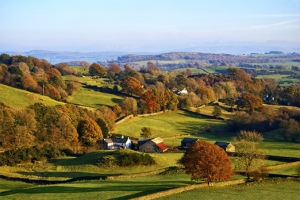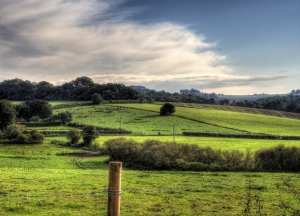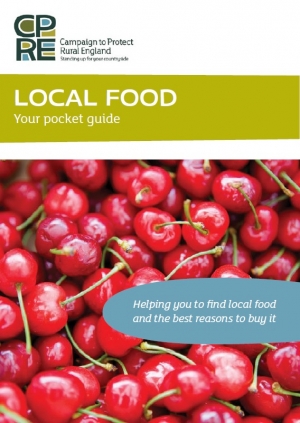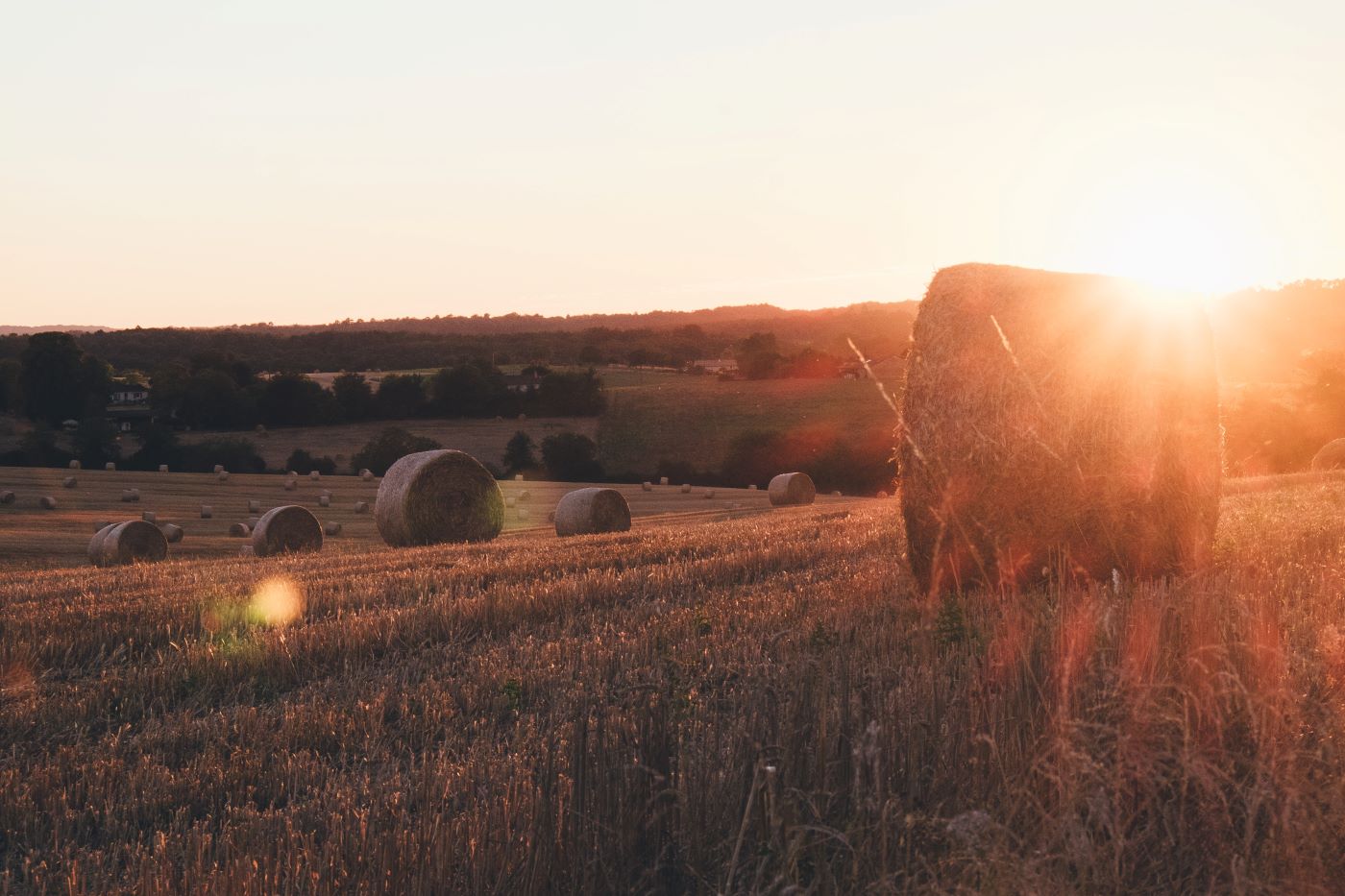CPRE welcomes Environment Secretary Michael Gove’s announcement today (4 January) that the current subsidy regime for farmers, in which most payments are related to the amount of land owned, will be replaced by a scheme focused on public benefits and enhancing the countryside.
CPRE made the case for this in our 2016 report New Model Farming.
The announcement was made at the Oxford Farming Conference, where Gove set out his plan for post-Brexit agriculture in the UK. He committed to continue the current level of payments until 2024, but will consult on a cap to reduce the amount of money that goes to the largest land owners. From 2024 payments will be made based on the delivery of public benefits, including environmental benefits such as planting woodland and improving soil health, and also wider contributions from farms such as rural resilience and increasing access to farmland for the public.
Belinda Gordon, Head of Rural Policy at the Campaign to Protect Rural England said:
“It is great to hear Michael Gove commit to putting his money where his mouth is and redirecting public money to public benefits. If designed well the new scheme should help enhance the landscapes and countryside from which we know Michael Gove, as well as the rest of us, derives so much pleasure and inspiration. We particularly welcome his recognition of the need to support smaller farms for the vital role they play in rural areas and in maintaining the diversity of our landscapes. The devil will be in detail so CPRE looks forward to working with Defra to develop a policy that will enhance our landscapes and stem the loss of farms from the countryside.”
CPRE believes that diversity in farm size and enterprise is crucial to maintaining England’s world-renowned landscapes and variety of food. Smaller farms are vital to the countryside as they sustain rural communities through jobs and protect distinctive local character. In their diversity of approaches, they create greater diversity in food production and conservation, both of which shape rural heritage and rural economies.
 As both the hard realities and potential opportunities of Brexit begin to crystallise, farming is making the headlines. We’re used to this happening when there are scandals or disease - think of bovine TB and badger culling, horsemeat, or ‘mad cow disease’ - but much less so with talk about policy, the environment or the future of farming. But, for all the recent media coverage and debate and for all the signs that the inequities and inefficiencies of the CAP might be put behind us, the raw loss of farms barely gets a mention, if at all. Generally speaking, it’s hard to think of another industry that has lost so many businesses and in which such change and its impacts aren’t discussed. Throw in the context of Brexit and the part the countryside plays in our national psyche, as well as our health and well-being, and this silence is a bit of mystery. What should be an important part of our national conversation, is hardly a whisper behind closed doors.
As both the hard realities and potential opportunities of Brexit begin to crystallise, farming is making the headlines. We’re used to this happening when there are scandals or disease - think of bovine TB and badger culling, horsemeat, or ‘mad cow disease’ - but much less so with talk about policy, the environment or the future of farming. But, for all the recent media coverage and debate and for all the signs that the inequities and inefficiencies of the CAP might be put behind us, the raw loss of farms barely gets a mention, if at all. Generally speaking, it’s hard to think of another industry that has lost so many businesses and in which such change and its impacts aren’t discussed. Throw in the context of Brexit and the part the countryside plays in our national psyche, as well as our health and well-being, and this silence is a bit of mystery. What should be an important part of our national conversation, is hardly a whisper behind closed doors.
CPRE’s new Food and Farming Foresight report published this week, Uncertain Harvest, aims to ignite a wider debate about the issue of diminishing small farms, and at a time of momentous change in politics, farm policy and funding. The report gives a range of reasons as to why farms are being lost, why this matters and suggests what we need to do about it. Its starting point is that we need to consider what a diverse mix of farm sizes and farmers managing the land means for the countryside. The natural environment is central to this but a living and thriving countryside also means the jobs and communities that are directly and indirectly connected to farming and affected by it.
Could it be that changes to farm sizes and their diversity aren’t that severe or shocking? The data, on my reading, shows the opposite. It isn’t the easiest to analyse and make sense of but, taking academic research for England and Wales, we lost 128,000 farms of 296,000 from 1950 to 1980 - over 40%. More recent data from DEFRA, for England alone, shows that from 2005 to 2015 we lost a fifth of all farms and nearly a third of those under 50 hectares - from a much lower base of 132,000 farms. The farms being lost aren’t all tiny - 50 hectares is at least the size of 60 or more football pitches – and it is farms both above and below this size that are falling away. However, if these trends continue – at a loss rate of over 2800 a year – we might lose most, if not all, smaller farms by the mid-2040s. This means we are losing key types and sizes of farms that create the rich mosaic of our landscapes, and with it put at risk the diversity that comes from different farmers doing different things for different reasons in different places.
In truth, we don’t know the extent of what these changes really mean. Farms may be dropping from the figures as they become non-commercial and part-time or if they grow or shrink or are consolidated into another. What evidence we do have, especially from the important report from Mike Winter and Matt Lobley at Exeter University in 2016, shows that the potential impacts could affect a wealth of issues: rural jobs, rural services, the relations between farms and rural communities, the character of the countryside and the ‘conservation capital’– the hedges, meadows and woods that are richly present on many small farms and important for nature.
At the very least then, we need to find out what is happening across the country in different areas and sectors and what the impacts of these trends may be in the long run. Uncertain Harvest calls on the Government to act now to fill this evidence gap: publish better data and analysis so that the debate can begin and be properly informed. Such evidence should ultimately shape a new English farming policy that factors in farm diversity and a regeneration of farming as part of a funding model, which delivers greater environmental benefits. The market has a critical role to play too; we need a model for the future of farming that is economically and environmentally sustainable and resilient. Farms of all shapes and sizes need to have a place in that future, so we need to ensure they are efficiently supported.
Find out more
Read the press release: Smaller farms heading towards a cliff edge
Download the report: Uncertain Harvest
A new report from the Environmental Audit Committee warns that wildlife and farming could be harmed by the Brexit process. MPs are calling on the Government to introduce a new Environmental Protection Act during Article 50 negotiations to uphold the UK's strong environmental standards. The report suggests protections for wildlife and habitats could be weakened while farmers could face lost subsidies, export tariffs and increased competition after Brexit.
Belinda Gordon, head of rural affairs at the Campaign to Protect Rural England (CPRE), says:
“The report is right to recognise that future support for land management should encourage innovation. We also agree that funding should be tied to public benefits beyond food production, and be tailored to the local landscape.
“Brexit could have a huge impact on farming and the natural environment, but it also gives the Government a chance to develop an ambitious agricultural policy that supports the distinctive attributes of English farming that make our countryside so beautiful and vibrant. We should also look to redirect public funding towards things that really benefit the public as well as farmers – wildlife, distinctive and varied landscapes, and flood and soil protection, alongside food production.”
It has been reported that a farmer in Sussex has rebuffed an offer for his land 100 times its current value – partly based on a desire to protect the countryside for future generations. CPRE welcomes such commitment to the countryside, but also argues that this case once again illustrates the failures of our planning system in encouraging aggressive, speculative development. Graeme Willis, senior rural affairs campaigner at the Campaign to Protect Rural England (CPRE), comments:
“This seems exceptional on a number of levels. We recently heard of a case where an offer of 20 times the current value of land was turned down, so 100 times is very significant. It is also extremely admirable that the farmer in question has reportedly rebuffed the offer for quality of life and community reasons. He has sought to preserve the countryside for the generations after his – and has placed these considerations above financial incentives.
“It is invidious that so many landowners are put in this position by highly speculative land acquisition – especially where there is huge community opposition and no planning permission. The current developer-led planning system has significantly increased the regularity and pressure of speculative development – which is both divisive and distressing for communities. In its place, we need a plan-led system where the focus is on land that people want to see developed – like the brownfield sites around the country that can provide the space for one million new homes.
“Finally, the value of farmland must be emphasised more in the debates about new housing. Unless we have a better way of factoring in the production value of land, rather than always seeing it trumped by development value, then we will continue to lose vital farmland that feeds our rural and urban areas. Climate change and global pressures on land necessitate the preservation of our best farmland for food production – not unwanted and unsustainable housing developments.”
CPRE expressed disappointment at today’s announcement by Defra on how much money rural development measures, including green farming schemes, will receive. The Government has decided to limit to 12% the amount of money that will be transferred from payments to farmers for schemes that help wildlife and improve the quality of the countryside.
CPRE had called on the Government to transfer the maximum 15% from farming payments, to maximise the value for money to the public and to give wildlife habitats and landscape features the support they need. However, CPRE is pleased that Defra has recognised concerns that the new green farming scheme needs to make maintaining landscape character a higher priority.
Ian Woodhurst, Senior Farming Campaigner said: ‘CPRE is disappointed that the Government has failed to give the countryside and the public what they deserve by not giving green farming schemes the funding boost they needed. We have serious concerns that the new green farming scheme will be severely limited in its scope; particularly when it comes to improving the quality of our much loved landscapes that are so vital to the rural economy.’






